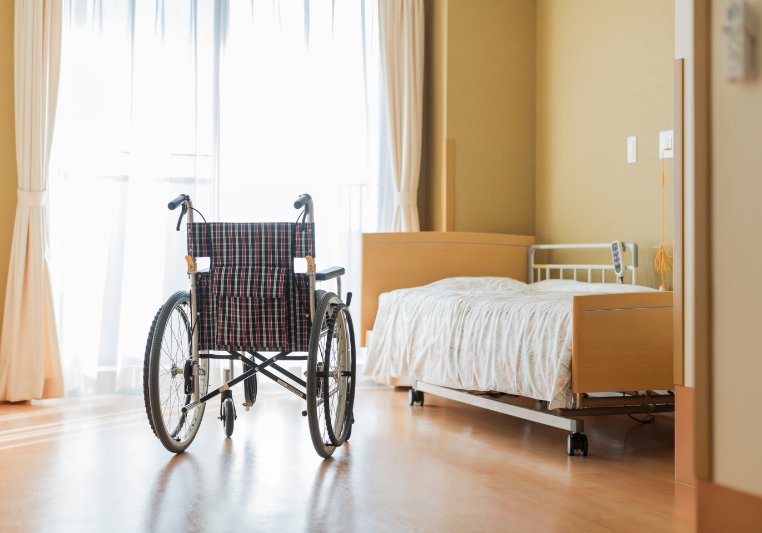
Nursing Home Patient’s Death Leads to Lawsuit, Criminal Charges
Many Michigan nursing homes provide excellent quality care to residents with cognitive and physical limitations. Unfortunately, not all facilities meet this standard. To cut costs and increase profits, some facilities make decisions that increase the likelihood of abuse, neglect, and medical malpractice. Inadequate employee screening, lack of training, and poor supervision can create a dangerous environment for residents.
Managing a High-Risk Patient
In October 2021, a 58-year-old patient died at Medilodge of Richmond, a skilled nursing facility. He suffered from dementia, impaired cognition, repetitive falls, and weakness. He was also nonverbal. Because of these conditions, he needed a great deal of help and supervision for many tasks.
This patient also had an “oral fixation,” or tendency to put non-food items (including blankets, paper, napkins, and styrofoam) in his mouth. This was well-documented in his records. His standing orders noted that he required supervision and assistance during meals and should not be given non-consumable items that could be choking hazards (such as condiment packages, wrapped butter, napkins, etc.).
Negligence Leads to Tragedy
Despite the patient’s known history and high risk, staff failed to take appropriate precautions to keep him safe. They provided him with a dinner tray containing choking hazards, including ketchup packets, and did not supervise or assist him in eating. He was left alone with his dinner tray in his private room for at least an hour.
A nurse who entered his room to dispense medication noticed he was pale, nonresponsive, and having difficulty breathing; she also observed food in his mouth. After additional medical staff arrived, the patient stopped breathing. Efforts to revive him using the Heimlich maneuver and CPR failed.
When emergency services arrived, they inserted a breathing tube and transported him to the hospital. He suffered nearly twenty minutes of inadequate oxygen to the brain, resulting in brain death. His sister made the difficult decision to cease life support, and the patient passed away.
Holding Negligent Parties Accountable
A staff member contacted Adult Protective Services to report their suspicions that the facility’s negligence caused the patient’s death and that facility employees were covering up their responsibility. The Michigan Attorney General’s office is investigating and has filed criminal neglect charges against the employee responsible for supervising the patient during his evening meal.
The patient’s death was the foreseeable result of negligent care and an inadequate emergency response. Sommers Schwartz attorneys Dina Zalewski and Judith Susskind are pursuing a nursing home negligence action against the facility on behalf of the patient’s family, which will be resolved through arbitration.
Covering Up Negligence and Abuse
Protecting the bottom line can lead nursing homes and care facilities to cover up incidents of abuse, neglect, or mistreatment. Unfortunately, management and staff are too often incentivized to cover up incidents or signs of abuse and neglect, even though they are legally obligated to report such incidents to law enforcement and protected by whistleblower laws.
Actively covering up mistakes, negligence, or intentional abuse makes it difficult for families to learn the truth about their loved one’s care and treatment. When such cases come to light, nursing homes can face personal injury lawsuits brought by residents and loved ones. State and federal regulators may also impose hefty fines and sanctions against facilities charged with abuse or neglect.
Talk to an Experienced Nursing Home Neglect Lawyer
At Sommers Schwartz, the attorneys in our Medical Malpractice Litigation Group relentlessly work to reveal the mistreatment of seniors and hold wrongdoers accountable for their conduct. We have the experience and tenacity to protect seniors from nursing home abuse and neglect and obtain justice and compensation for victims of abuse.
If you believe that you or a loved one is suffering from abuse, neglect, or mistreatment in a Michigan nursing home or assisted living facility, please contact us today.
Dina Zalewski
Dina Zalewski is an associate in Sommers Schwartz’s Medical Malpractice Litigation and Personal Litigation groups. From a young age, she knew she wanted to be a lawyer and, because her family was directly affected by a healthcare provider’s medical negligence, joining the medical malpractice team here at Sommers Schwartz was a natural fit.





